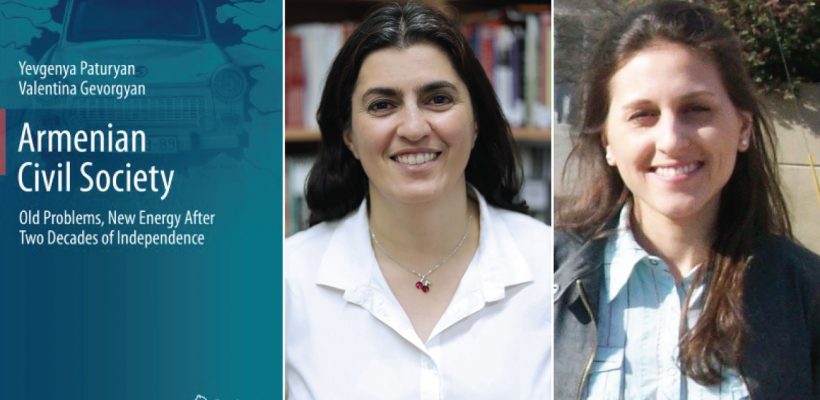
PSIA’s Jenny Paturyan Co-Authors a Book on Armenian Civil Society
2 min readThe American University of Armenia (AUA) is proud to share the recent release of a book by Dr. Jenny Paturyan, associate professor at AUA’s Political Science and International Affairs (PSIA) program, and Valentina Gevorgyan (MPSIA ’11). The book, titled “Armenian Civil Society: Old Problems, New Energy After Two Decades of Independence,” is featured in the book series Societies and Political Orders in Transition published by Springer International Publishing. The series identifies and analyzes factors influencing change and continuity in societies and political orders.
“The book is a result of a four-year research project, implemented in 2012-2016, funded by Academic Swiss Caucasus Net. During those four years, we worked with an excellent team of AUA students and alumni as well as young Armenian professionals from Yerevan State University. Here are the names of our colleagues who contributed to this effort: Tatevik Badalyan, Bella Baghdasaryan, Armine Bagiyan, Anna Drnoyan, Amalya Fljyan, Arman Gasparyan, Nvard Grigoryan, Angela Hassassian, Nina Kankanyan, Ani Kojoyan, and Nelly Minasyan. I am very proud to state that it was an almost entirely female-driven effort. We also received support and advice from international scholars, particularly Dr. Mariella Falkenhain and Dr. Simone Baglioni,” noted Dr. Paturyan.
The book analyzes Armenian civil society from various points of view and places it in a broader historical and regional perspective. Using a range of methods, the research team collected a wealth of primary and secondary data on various aspects of Armenian civil society: formal organizations, informal activism, volunteering, use of media, gender roles, generational change, and the overall political culture of post-soviet skepticism.
The work was inspired by two major authors in the field: Michael Edwards, who conceptualizes civil society as a complex ecosystem of various interdependent entities, and Marc Howard, who twenty years ago described post-communist civil society as weak, predicting that it is likely to remain weak for at least another decade. The aim of the project was to test that prediction for Armenia and to explore what the ecosystem of Armenian civil society looks like today.
“In a nutshell, we can say that our biggest findings are: a) Howard was partially correct, there are still some traces of Soviet legacy that influence Armenian civil society, but there is also remarkable resilience and recovery; b) the young generation is different and is the inspiration for change,” notes Dr. Paturyan.
The book is available both online and in print.
The Political Science and International Affairs (PSIA) program of the American University of Armenia (AUA) equips students with advanced analytical reasoning, critical thinking, and communication skills through the study of political science and international affairs, emphasizing local and global perspectives and practical applications of theory. The program provides world-class teaching and research, producing graduates who can best contribute to the development of the nation.
